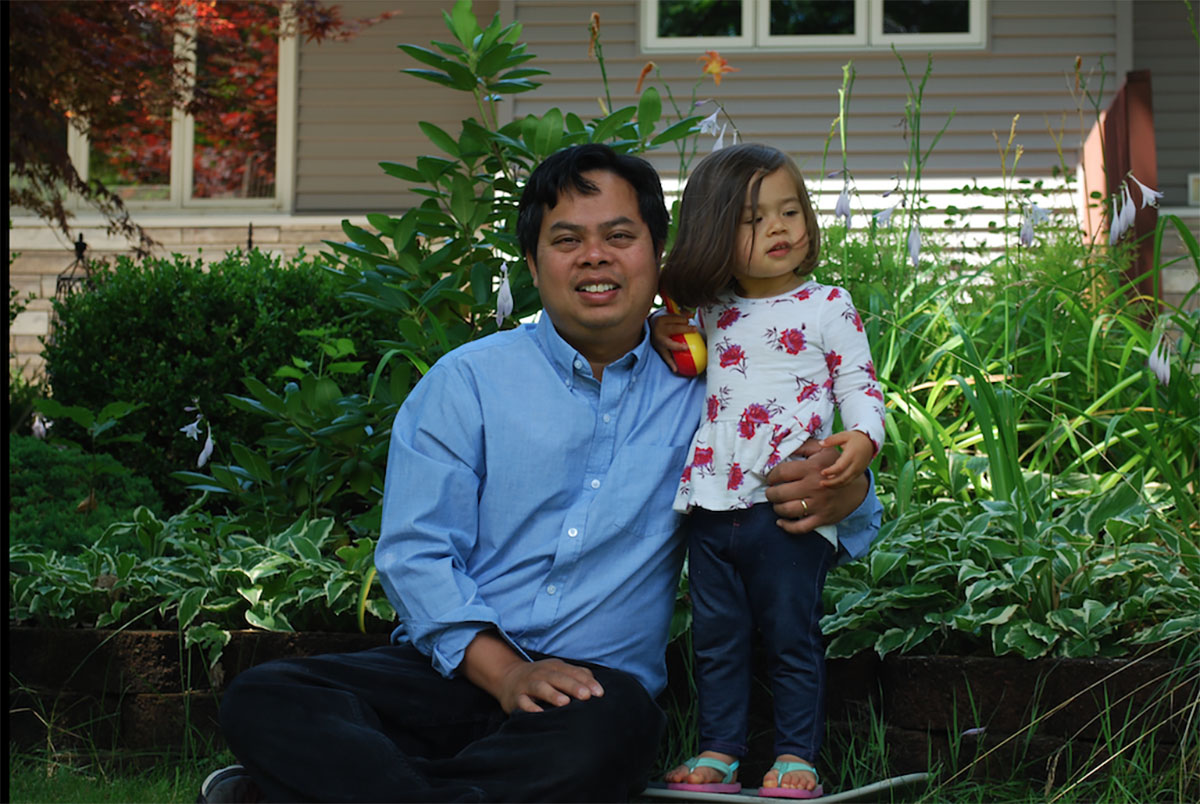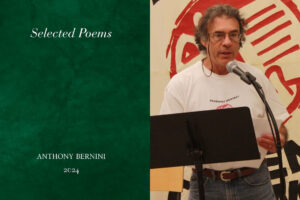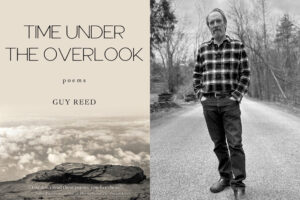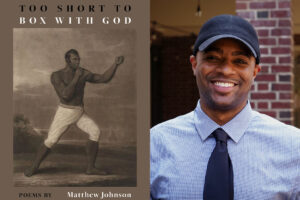The Doctor Will Fix It
by Bunkong Tuon
Shabda Press, 2019
Although not limited to poems about parenthood, the primary focus of Bunkong Tuon’s new collection is parenting a bi-racial daughter in Trump’s America. The pieces are not overtly political, but they shed light on how politics impact families. The title of the collection resurfaces in the poem, “After a Snowstorm,” where the narrator is driving with his family and says, “Temperature is supposed to skyrocket/ into the 70s tomorrow/ strange days we’re having,” to his wife. His wife responds, “It’s no stranger than anything/ else happening in our world.” Then their daughter chimes in, “Mommy, it’s not bright. There is no sun/ Oh no! The sun is broken.” The poem ends with her saying: “But it’s okay, Mommy and Daddy./ The doctor will fix it.” The narrator’s daughter, Bunkong’s daughter, becomes the poet in this piece, adding in lines that are seemingly simple and childish, but contain a multitude of implicit meanings, not just in this one particular poem, but throughout the collection. Tuon’s incorporation of his child’s words throughout the poem gives the pieces a depth of meaning.
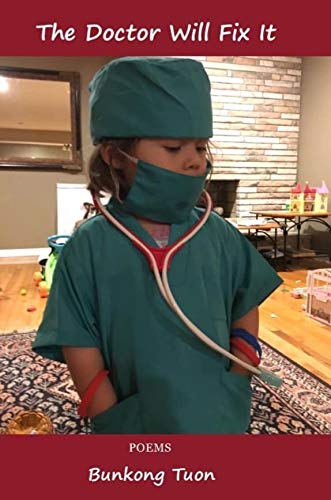 Ironically, the narrator wants his daughter to be the doctor in “Confession of a Tiger Dad,” the narrator actually tells his wife that he wants her to be a doctor. When his wife asks, “You want to be a stereotype,” he responds, “Can’t an Asian-American father/(note the hyphen) want his daughter/ to be a doctor/ without risking being a stereotype?/My wife says nothing/ “You know I’m a curmudgeon when sick/ I just want her to take care of me when I’m old.” Or maybe he just wants her to fix the broken sun, make the world a better place. The narrator seems to be putting his faith for a better America in the hands of his daughter because aren’t children our best hope for transforming the future?
Ironically, the narrator wants his daughter to be the doctor in “Confession of a Tiger Dad,” the narrator actually tells his wife that he wants her to be a doctor. When his wife asks, “You want to be a stereotype,” he responds, “Can’t an Asian-American father/(note the hyphen) want his daughter/ to be a doctor/ without risking being a stereotype?/My wife says nothing/ “You know I’m a curmudgeon when sick/ I just want her to take care of me when I’m old.” Or maybe he just wants her to fix the broken sun, make the world a better place. The narrator seems to be putting his faith for a better America in the hands of his daughter because aren’t children our best hope for transforming the future?
Don’t we all want what is best for our child? Don’t we want to bring them to the park where we can run around and push them on the swings? As much as we all want to live in an idealistic fantasy, we have to deal with the reality of where we are at on a societal level as Tuon shows us in “Swing Daddy, Swing.” On the drive to the park, “… a giant black pickup cuts in front,/ a Confederate flag on its tailgate./ On the bumper are two metallic balls/ and a silhouette of a leggy/ woman in cowboy boots and hat/ blowing the tip of a pistol.” Then when they get to the park, the narrator sees an “all-American” family and immediately feels an uncomfortable tension. “The silence is a razor blade,/ cutting through the clouds over/ the bridge that divides the city.” Then he goes on to say, “We are the faces of a new America:/ the father a refugee, Chanda a mixture/ of the islands of Greece, the hills of Sicily,/ and the green paddies of the Mekong Delta.” This poem clearly shows the distance between people, the polarization of this country in the everyday.
This new America that Tuon mentions, our current America, continues to deal with the same issues that newcomers have often faced throughout history. In the poem, “At a Concert,” an outdoor concert with family, quickly changes when the musicians conclude their performances with “God Bless America,” and Tuon writes, “…The minute you feel American/ something always happens to strip that away,/ to remind you of your skin, your hair, your flat nose/ and you begin to stutter and the accent/ tumbles out of your Asian lips like flies.” When I say these aren’t overtly political poems, I don’t deny the potency of these subtleties. I feel like these poems truly capture the essence of the world that we are living in, a world where some days it truly seems as though the sun is broken.
Tuon speaks more universally of the topic of immigration and the mistreatment of humans in “Unhappy Father’s Day,” where he writes about his reaction after reading a Father’s Day card from his daughter: “Her gift brings up horrors/ of those parents who are detained,/ Who watch their children torn/ Away from their trembling hands./ Grown men and women weep./ Some men hang themselves with their belts/ From Guatemala, Honduras, Nicaragua/ Because there is nothing they can do./ I too just like them:/ My uncles, aunts, grandparents took/ What they could carry./ Me on my grandmother’s back and we left/ Cambodia to seek refuge in America./ How was my family different from theirs?” Tuon shares a seemingly precious moment between himself and his daughter and then reminds us of the horrors of detainment and how they are destroying families. By internalizing this injustice, Tuon reminds us of the disturbing reality of what is happening right here, right now.
While these poems touch upon a plethora of complications involving raising a bi-racial child in America, Tuon allows his comedic side to surface in several pieces. In “The Kind of Father (After Gloeggler’s “The Kind of Man”) he writes, “I am the kind who goes/ to Target to buy toddler snacks/ and ends up with an inflatable/ kiddie pool in the shape/ of a white unicorn.” The diversity of emotional outpourings in this collection help create a multidimensional narrator that the reader can trust and relate to. In “Chanda, the Liar,” the narrator’s daughter says that she needs to use the bathroom, so the narrator stops at a McDonald’s where she makes out with a Happy Meal containing a plastic polar bear. Later the narrator says to his wife, “We’ve been duped by fake poop.” This hysterical scenario juxtaposes perfectly with the more solemn subject matter addressed in the collection and I believe that is the magic of Tuon’s work. He creates a narrator who you trust because of the way he leads you through a gamut of relatable emotions. I marked up every page of this book, which may be a serious offense to some book lovers, but to me is the highest praise.
Bunkong Tuon is a Cambodian-American writer and critic. He is the author of Gruel, And So I Was Blessed (both published by NYQ Books), The Doctor Will Fix It (Shabda Press), and Dead Tongue (a chapbook with Joanna C. Valente, Yes Poetry). His poetry won the 2019 Nasiona Nonfiction Poetry Prize. Tuon teaches at Union College, in Schenectady, NY.

